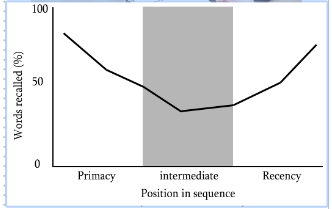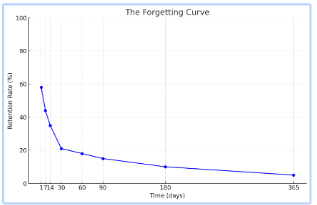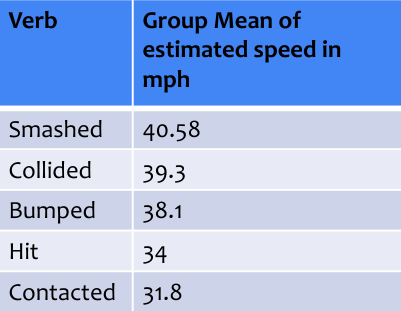AP Psych (Cognition/Memory)
1/63
Earn XP
Description and Tags
Name | Mastery | Learn | Test | Matching | Spaced | Call with Kai |
|---|
No analytics yet
Send a link to your students to track their progress
64 Terms
Memory
the persistence of learning over time; it is information that has been acquired and stored and can be retrieved. the persistence of learning over time; it is information that has been acquired and stored and can be retrieved.
Encoding
where information is transformed into a format that can be processed in the brain
Storage
the process of retaining information in the brain over time
Retrieval
the process of accessing & bringing stored information back into conscious awareness
Explicit Memories
involves conscious recall of facts and experiences.
Requires some type of effort. This could be studying, retelling a story of the event etc.
Semantic Memory
recall of general facts and knowledge about the world.
Knowledge of concepts, words, symbols, and meanings.
Information is independent of personal experience and context. Things you learn in school, facts.
Episodic Memory
recollection of personal experiences and specific events.
Remembers the "what," "where," and "when" of past experiences.
Recalled from a first-person viewpoint.
Implicit Memories
This type of memory does not require conscious thought
Procedural Memory
type of implicit memory that involves the recall of how to perform tasks or skills automatically. It includes:
Skill-Based Actions: Such as driving, typing, or playing musical instruments.
Actions performed routinely without conscious thought.
Prospective Memory
remembering to perform a planned action or recall a planned intention at some future point.
(e.g., giving a message when you see someone).
Remembering to perform an action at a specific time (e.g., taking medication at noon).
Long-Term Potentiation (LTP)
long-lasting increase in signal transmission between neurons that results from their simultaneous activation. LTP is considered one of the major cellular mechanisms that underlies learning and memory.
Multi-Store Model
describes memory as a three-part system that includes:
Sensory Memory
Short-term Memory
Long-term Memory.

Sensory Memory
the initial stage of memory
sensory info is stored for a very brief period.
Ex: Iconic and Echoic
Iconic Memory
Sensory input to the visual system, duration of less than a second
Echoic Memory
Auditory information. It holds sounds for about 3-4 seconds.
Short-Term Memory
information held for about 15 to 30 seconds. It has a limited capacity.
Long-Term Memory
information is stored indefinitely, with a virtually unlimited capacity
Working Memory
temporarily holding and manipulating information
Central Executive
the control center of working memory. Integrates info from our senses & long-term memory.
Essential for planning, problem-solving, and decision-making.
Phonological Loop
component of Working Memory responsible for holding and rehearsing verbal info
It consists of two parts:
Temporarily holds words and sounds for a few seconds.
Rehearses and refreshes information through subvocal repetition.
Visuospatial Sketchpad
component of Working Memory that handles visual and spatial information.
Enabling tasks such as:
Navigation
Geometry/Math
Encoding
where information is transformed into a format that can be processed in the brain
Storage
the process of retaining information in the brain over time.
Retrieval
the process of accessing & bringing stored information back into conscious awareness.
Levels of Processing Model
proposes that the depth at which information is thought about affects how well it is remembered.
Deeper Processing > Shallow Processing
Shallow/Automatic Processing
basic level of processing
focuses on surface characteristics of information, such as the sound or appearance of words
Involves Minimal Attention: Relies on repetition or simple recognition.
Structural
type of shallow processing that focuses on the physical structure of information
Phonemic
shallow processing that focuses on the auditory aspects of information.
Deep/Effortful Processing
involves thoroughly processing information by focusing on its meaning and connecting it to existing knowledge.
Semantic
Making meaning of item you are trying to remember
Chunking
Categories
Hierarchies
Mnemonics
Method of Loci
Chunking (Grouping)
memory strategy that involves grouping individual pieces of information into larger, meaningful units.
Categories (Grouping)
grouping related items together into categories. This process enhances memory by:
Makes it easier to access information through associated links between items within the same category.
Hierarchies (Grouping)
organizing information into a system of ranked categories or levels.
Mnemonics
techniques used to improve memory. They help in recalling information by associating it with cues like patterns, vivid images, or rhymes.
Method of Loci
mnemonic technique that involves associating items to be remembered with specific physical locations. It enhances memory by:
Links information to visual representations of familiar locations.
Allows for retracing the mental path through these locations to retrieve the associated information.
Serial Position Effect
usually recall the last words and first words best, forgetting the words in the middle
Primacy Effect, better recall of the first/beginning items from a list etc.
Recency Effect, better recall of the last/end items from a list etc b/c still in working memory

Massed Practice “Cramming”
learning strategy where content is studied intensively over a short period without breaks.
This approach may yield quick results but is less effective for long-term memory retention compared to spaced practice.
Spacing Effect “Distributed Practice”
learning is more effective when study sessions are spaced out over time, rather than crammed into one session.
Spacing study sessions allows for better consolidation of memories (short-term to long-term storage).
Storage
Sensory memory, short term memory, working memory and long-term memory are processes that differ in storage duration, capacity and content
Autobiographical Memory (HSAM)
VERY RARE and SPECIFIC
integrates the factual details of the episode (names, places) with personal emotional experiences.
It combines:
Episodic Memory and Semantic Memory
Maintenance Rehearsal
learning technique that involves repeatedly reviewing information to keep it in short-term memory.
Effective for retaining information temporarily but less useful for long-term retention.
Elaborative Rehearsal
memory technique that involves deep processing of information by adding meaning or connecting it to existing knowledge.
Promotes stronger, more lasting memory storage by linking new information to prior knowledge.
Anterograde Amnesia
memory disorder
inability to form new memories after event
Always living with short term memory
Older memories before the amnesia are preserved.
Anterograde Amnesia: Think 'A' for 'After'
H.M. Case Study
One of the most studied and influential cases in the field of neuroscience and psychology. His story sheds light on the role of the hippocampus in memory formation and has greatly contributed to our understanding of amnesia and the organization of memory in the brain.
Retrograde Amnesia
memory disorder
loss of memories formed before the event that caused amnesia.
Individuals can still learn new information and create new memories.
Remember 'R' for 'Retro in the Past'"
Infantile Amnesia
We cannot recall personal memories from before age 3-4.
Attributed to the ongoing development of the brain's memory systems, especially the hippocampus and prefrontal cortex.
Retrieval Cues
stimuli that help bring previously learned information to mind.
**sometimes the hardest part of memory is the accessibility, so we have to create and be aware of cues to help us.
Recall
memory retrieval without the aid of cues (retrieve information from memory spontaneously)
Ex: Fill in the blank tests/Essay questions
Recognition
memory retrieval that involves identifying information when it is presented with aids to help:
Ex: Multiple Choice tests, remembering melody or lyrics but not the name of the song
Context-Dependent Memory
remember info better in the same environment where you first learned it.
Physical surroundings: Like being in the same room where you studied.
Similar conditions: Such as the same background noises or smells.
State-Dependent Memory
memory retrieval is most effective when an individual is in the same state of consciousness as they were when the memory was formed.
Ex: Physical State: Such as being tired or energized.
Mood-Congruent Memory
the tendency to recall information that is consistent with one's current mood.
Memories are more easily retrieved when they match the emotional state at the time of recall.
Metacognition
the awareness and understanding of one's own thought processes, especially in relation to learning and memory.
The Forgetting Curve
graphical representation of the rate at which memory fades over time.
Memory loss is fastest soon after learning, as the brain deems some information non-essential.

Encoding Failure
occurs when information does not enter long-term memory due to inadequate processing at the time of encoding.
“In one ear and out the other”
We cannot learn or recall what we do not perceive and attend to
Tip-of-the-Tongue Phenomenon
individual feels confident that they know a word or a name, but cannot immediately recall it.
Source Amnesia
the inability to remember where, when, or how previously learned information has been acquired (lost context), while retaining the factual knowledge.
Similar to Deja Vu!
Repression
distressing thoughts and memories are unconsciously blocked from entering conscious awareness.
Serves to protect the individual from psychological distress by keeping painful memories out of the conscious mind.
Proactive Interference
Older memories interfere with retrieval of newer learning
Think 'P' for 'Prior' or 'Pre-existing'"
Retroactive Interference
Newer learning interfere with the retrieval of older memories
Remember 'R' for 'Recent'
Constructive Memory
the process by which memories are not merely retrieved but actively constructed.
During memory consolidation, new memories can be integrated with existing memories, influenced by prior knowledge, beliefs, and experiences
Imagination Inflation
imagining an event that never occurred can increase confidence that it did occur
Loftus and Palmer Study (1974-75)
In the experiment, 45 students at the University of Washington were each shown films of traffic accidents. Following the video, participants wrote an account of the accident and answered questions. The key question asked them to estimate the speed of the vehicles during the accident.

Misinformation Effect
happens when new, incorrect information influences how we remember past events.